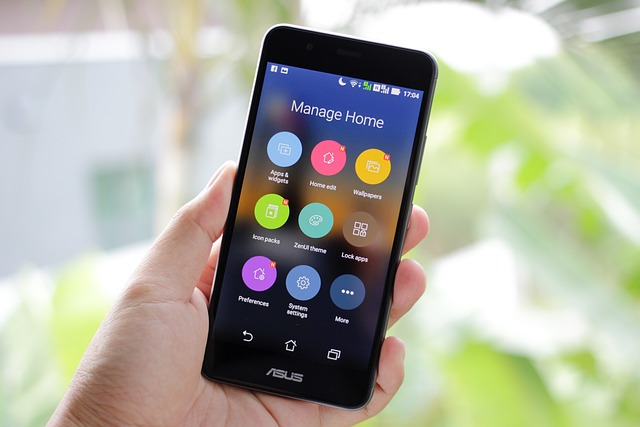Nonprofits in Minot, North Dakota, must adhere to strict telemarketing regulations to protect residents from unwanted calls. They should consider hiring an experienced unwanted call lawyer or law firm specializing in these laws to avoid fines and damage to their reputation. Creating a comprehensive Telemarketing Policy, training staff on ethical practices, and conducting regular reviews are essential for compliance. Engaging legal counsel can guide nonprofits through documentation, incident handling, and legal action, ensuring they stay within consumer protection laws and protect donor relationships.
Creating a robust telemarketing policy for your nonprofit in Minot, North Dakota, is essential to navigate regulations and protect your organization from unwanted calls. With the right policy, you can ensure compliance with state laws while fostering positive donor relationships. This guide explores key aspects, from understanding telemarketing regulations in ND to setting clear guidelines for callers and volunteers, and enforcing procedures with training and regular review. Additionally, learn how to address legal implications of unwanted calls with expert advice from a reputable North Dakota unwanted call lawyer or attorney at a trusted law firm.
Understanding Telemarketing Regulations in North Dakota
In North Dakota, telemarketing regulations are designed to protect residents from unwanted calls, especially when it comes to charitable and nonprofit organizations. It’s crucial for your nonprofit in Minot to understand and comply with these laws to avoid legal issues. The state has specific guidelines regarding consent, do-not-call lists, and the manner in which calls can be made, including the hours during which telemarketing is permitted. Failure to adhere to these regulations may result in fines and damage to your organization’s reputation.
North Dakota law requires nonprofits to obtain explicit consent from potential donors before making telemarketing calls. This means that every call should be preceded by an opt-in from the recipient, usually through a signed permission form or clear verbal consent. Additionally, there are restrictions on calling times, with certain hours set aside for do-not-call activities. Engaging the services of an experienced unwanted call attorney or unwanted call law firm in North Dakota can help your nonprofit navigate these regulations effectively and ensure compliance to avoid any legal complications.
Identifying Unwanted Calls and Their Legal Implications
In Minot and throughout North Dakota, nonprofits must navigate a delicate balance between outreach efforts and respecting privacy laws. One common challenge is dealing with unwanted calls, which can range from telemarketing to nuisance calls. Identifying these calls is crucial not only for maintaining donor relations but also for avoiding potential legal implications. Nonprofits are protected by the Telephone Consumer Protection Act (TCPA) and state-specific regulations, such as North Dakota’s laws on unwanted call communications.
If a nonprofit organization receives a complaint or identifies repeated unwanted calls, it’s essential to consult with an experienced unwanted call lawyer in North Dakota. Legal counsel can provide guidance on the best course of action, including how to document and handle these incidents, whether to seek cease-and-desist letters, or even take legal action against violators. Understanding the legal landscape is vital to ensuring your nonprofit complies with regulations while effectively protecting itself from potential penalties and negative publicity.
Crafting a Comprehensive Nonprofit Telemarketing Policy
Creating a Telemarketing Policy tailored to your nonprofit organization is essential, especially in navigating the legal aspects of unwanted calls in North Dakota. With an increasing number of telemarketing calls, including those from well-meaning nonprofits, many individuals become frustrated with unsolicited contact. As such, a comprehensive policy will protect both your organization and donors by establishing clear guidelines for making and receiving calls.
This policy should address various elements, such as obtaining proper consent, respecting privacy, providing clear opt-out mechanisms, and training staff on ethical telemarketing practices. By implementing these measures, you ensure compliance with North Dakota’s consumer protection laws, avoid potential unwanted call lawyer ND scenarios, and foster a positive relationship with your supporters, fostering a more sustainable fundraising approach.
Setting Clear Guidelines for Callers and Volunteers
Setting clear guidelines is essential when establishing a telemarketing policy for your nonprofit in Minot, especially to avoid unwanted calls and protect donors’ privacy. Educate both your volunteers and callers about acceptable practices by providing a comprehensive set of rules. Instruct them on how to identify and handle potential unwanted calls, emphasizing the importance of respect and consent.
Ensure that all volunteers are trained to recognize and decline requests for personal or sensitive information from unknown sources. Implement a verification process where necessary, allowing donors to confirm their details if they feel uneasy about a call. By setting these guidelines, your nonprofit can maintain a professional image while ensuring compliance with relevant laws, such as those regarding telemarketing and unwanted calls in North Dakota, thus fostering trust among potential and existing supporters.
Enforcement, Training, and Review Procedures
Enforcing a strict Telemarketing Policy is paramount to ensuring your nonprofit’s reputation remains untarnished and all interactions with potential donors or supporters adhere to legal standards, especially when dealing with unwanted calls in North Dakota. Engage a reputable unwanted call lawyer or unwanted call attorney in North Dakota (ND) to draft and review your policy, ensuring it complies with state regulations, such as the ND Telephone Solicitation Act. Regular training sessions for staff and volunteers involved in telemarketing activities are essential. These sessions should cover best practices, legal boundaries, and ethical considerations to prevent unwanted call complaints and potential legal repercussions.
Implementing a robust review process is equally critical. Periodically assess your policy’s effectiveness through feedback from both your team and external stakeholders, including donors and regulators. Stay updated on changes in telemarketing laws in ND and adjust your policy accordingly to remain compliant and protect your nonprofit from legal issues related to unwanted call lawsuits or investigations by the ND Attorney General’s Office.






